af Magazine
~The Asahi Glass Foundation’s web magazine on the global environment~


Words of wisdom by the Intellectual Giant, Professor Jared Diamond: "Take Action for the Environment 30 Years from Now--Preventing Collapse Requires Long-Term Vision and the Courage to Challenge Existing Values"
Professor Jared Diamond, a 2019 Blue Planet Prize laureate, is widely known as the author of the bestseller Guns, Germs, and Steel, in which he unravels human history through extensive knowledge encompassing biogeography, cultural anthropology, and linguistics. In his work, he elucidated the significant role of environmental factors in shaping human history. His next book, Collapse, highlighted the environmental issues underlying the downfall of civilizations, raising global awareness of their importance. Fifteen years have passed since the publication of Collapse. Now, regarded as an "intellectual giant," how does Professor Diamond perceive today's global environmental challenges, and what actions does he believe humanity should take moving forward? We spoke with him to find out.
(Interview date: February 20, 2025)
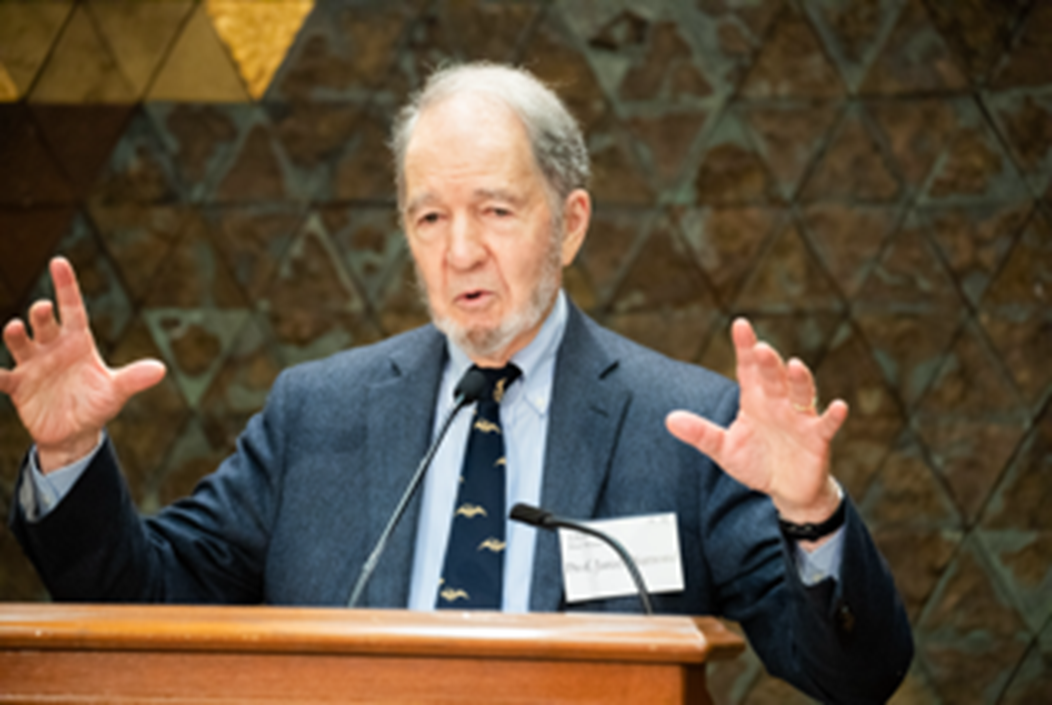
Professor of Geography at the University of California, Los Angeles (UCLA)
(A photo taken in 2019 during his visit to Japan)
Climate Change Is Amplifying Natural Disasters
In recent years, there has been growing concern worldwide about the increasing scale of natural disasters. The wildfire that occurred in Los Angeles on January 7, 2025, burned an area of 14,000 hectares including thousands of houses. Los Angeles is home to the University of California, Los Angeles (UCLA), where Professor Jared Diamond, a 2019 Blue Planet Prize laureate, teaches. Dozens of Professor Diamond's friends were forced to evacuate, and some lost their houses and everything that they owned. Professor Diamond stated that, in general, the climate crisis is increasing natural disasters worldwide. While climate change might have made this particular disaster slightly worse, he emphasized that it was not primarily caused by climate change.
"The climate in Los Angeles fluctuates a lot from year to year. A couple of years ago, we had two very wet years back-to-back. The wet years meant a lot of growth of vegetation. Then we had a hot year, which caused the vegetation to dry out, creating an abundance of dry fuel. This year, Santa Ana*1 winds were particularly strong. The fires were not started by natural causes; the origins were due to human error and then it spread rapidly due to the combination of wet years, dry years, and strong winds."
"At least, in the United States, 10 years ago, most Americans did not believe in the reality of global warming. However, awareness of its importance has grown as people have started suffering from it. Temperatures have risen, and the last year was the hottest summer here in Southern California, as well as in many other parts of the world. People are suffering from climate change. Among the twelve major environmental risks*2 facing the world, climate change is the most visible, the most directly harmful, and the one people take most seriously."
Notes
*1. Santa Ana winds are hot, dry winds that blow strongly from inland desert regions to the Pacific coast of Southern California during the fall and winter seasons. They have frequently contributed to the spread of wildfires.
*2. Twelve Environmental Problems in Collapse by Jared Diamond
Destruction or Depletion of Natural Resources:
1. Destruction of natural habitats
2. Decline of wild fisheries
3. Loss of biodiversity
4. Soil degradation
Reaching the Limits of Natural Resources:
5. Depletion of fossil fuels
6. Freshwater scarcity
7. Reduced photosynthetic capacity
Harmful Impacts:
8. Pollution from toxic chemicals
9. Damage caused by invasive alien species
10. Global warming due to greenhouse gas emissions
Population Growth and Its Impact:
11. Rapid population growth
12. Environmental consequences of population size and living standards
Growing Population and Increasing Environmental Impact
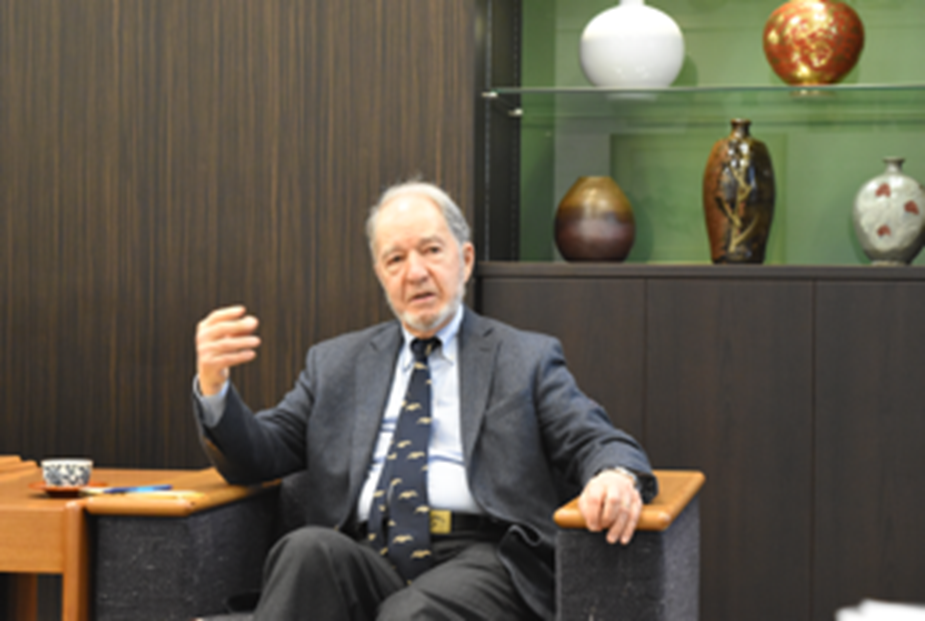
For over 30 years, the Asahi Glass Foundation has been conducting the annual "Questionnaire on Environmental Problems and the Survival of Humankind," surveying global experts on environmental issues. Based on this survey, the Foundation announces the time on the Environmental Doomsday Clock. The hands of a clock represents the respondents' sense of crisis regarding the survival of the humankind. Midnight signifies the time when we can no longer live as we have. Compared to 7:49 (fairly concerned) thirty years ago, when the survey began, for 2024, the time on the clock moved forward significantly, showing 9:27 (extremely concerned). While this marks a four-minute improvement from 2023 (9:31), regional differences in the sense of crisis remain notable: in 2024, the clock showed 10:17 for the United States and 10:15 for Western Europe, whereas in Africa and the Middle East, it remained in the 8 o'clock range.
Amid differing opinions among experts worldwide, how does Professor Diamond assess the current state of global environmental issues? Much like the varying evaluations reflected in the Environmental Doomsday Clock, he explains that there is both good news and bad news.
"The good news is that, surprisingly, some of the big international businesses, once among the most destructive forces in the world twenty years ago, have begun adopting measures to protect the environment. Their leaders have realized the importance of environmental protection, not only because it helps them save money but also because they recognize that their children will suffer from an environmental crisis."
In his book Collapse (2011), Professor Diamond categorizes environmental issues into twelve groups. Among these, issues related to population appear as the eleventh and twelfth topics, following information on energy and toxic substances. In the book, he emphasizes that "What really counts is not the number of people alone, but their impact on the environment." He points out that while per capita environmental impact is highest in the First World and lowest in the Third World, overall environmental damage is increasing. This is because people with a smaller per capita impact are either raising their living standards to match those of developed nations or migrating to these countries. As of 2025, Professor Diamond cites population growth, increased consumption, and the resulting rise in environmental impact as bad news.
"We may now have as many as 9 billion people. Around the world, more and more people--particularly in China and other countries--are becoming affluent, consuming more, and making more impact on the environment. Another piece of bad news is that the current U.S. government is quite distinctive and, by and large, hostile to the environment. Our new government has announced its intention of pulling out of the Paris Climate Agreement and is taking many other actions that are harmful to the environment. The good news is some big businesses are becoming helpful rather than harmful. The bad news is more people and more consumption, coupled with the current U.S. government and some other governments around the world," Professor Diamond says.
Note That per-capita impact--the resources consumed, and the wastes put out, by each person--varies greatly around the world, being highest in the First World and lowest in the Third World. On the average, each citizen of the U.S., western Europe, and Japan consumes 32 times more resources such as fossil fuels, and puts out 32 times more wastes, than do inhabitants of the Third World. (source: Collapse)
From Medicine to Environmental, Geographic, and Historical Research--Inspired by His Twin Sons' Birth
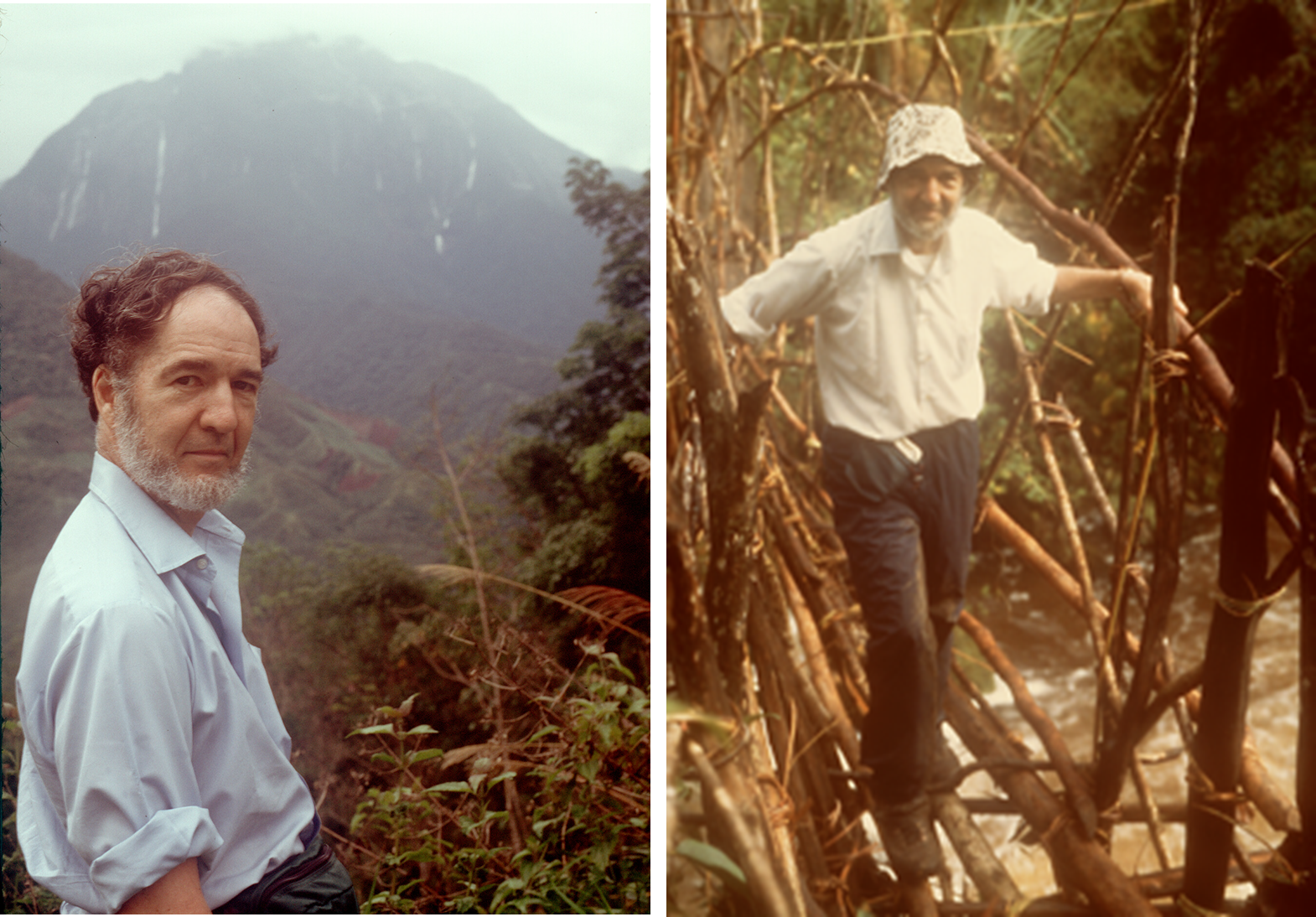
Currently a professor of geography at UCLA, Professor Diamond originally pursued a PhD in medicine, specializing in gallbladder research. Following in the footsteps of his father, who was a doctor, he initially chose a medical career. However, the birth of his twin sons became a turning point that led him to shift his research focus.
"When my twin sons were born in 1987, I suddenly realized that their future would depend upon the state of the environment, geography, and history. So, it was their birth that induced me to get out of physiological research and to switch to geography and history, about which I now write books.
Professor Diamond began to wonder what the world would be like in 2037 when his children turn 50, the same age he was at that time. Determined to leave a better world to them, he decided to study history, uncover the mechanisms of civilizational collapse, and explore how humanity should respond to environmental challenges."
With this vision, Professor Diamond wrote Guns, Germs, and Steel, a book that transcends disciplines to uncover the mysteries of human history. The work received high acclaim as a groundbreaking contribution to humanity and was awarded the Pulitzer Prize, one of the highest honors in literature and publishing in the United States. Reflecting on interdisciplinary research, he smiles and says that he did not set out to be interdisciplinary--rather, solving the mysteries he sought to understand simply required knowledge unrestricted by academic boundaries.
For example, consider the question of where the Japanese people originally came from. Archaeology and excavations alone are not enough to answer it, so Professor Diamond first approaches the question from the perspective of linguistics. The Japanese language is highly distinctive and has a large number of open syllables--syllables that end in vowels--a feature that differs significantly from English. By studying languages with a similar structure, one may gain clues about the origins of the Japanese people. Professor Diamond notes that linguistics provides an important clue to their origin. Next, he turns to genetics. Research has shown that the genes of the Japanese people are most similar to those of Koreans. Then, there's cultural anthropology. "Japan used to have highly distinctive pottery called Jomon pottery, which dates back over ten thousand years. However, around 2400 years ago, Japanese pottery began to resemble Korean pottery. If you want to understand the history of Japanese people, Professor Diamond explains, "you need to understand syllables, pottery, genes, and plants and animals. You need to be interdisciplinary."
"The main reason that I pursue a career in science is that the world is so interesting. There are so many things to understand, so many unanswered questions. If I were given one billion yen tomorrow, I would still sit at my desk reading and writing. I've been reading and writing since I was three years old. I do it not for the money but because it's so interesting.
"When my twin sons, who are now 37 years old, used to see me sitting at my desk, they would say, 'Daddy is sitting at his desk doing work.' I said back to my sons, 'No, I am not doing work. I am having fun.' I enjoy what I do. The university gives me a salary for having fun. There aren't many people in the world who get paid to have fun. As a researcher, you have a good chance of getting paid while enjoying your work."
Democracy, Capitalism, and Climate Change: Overcoming Three Crises
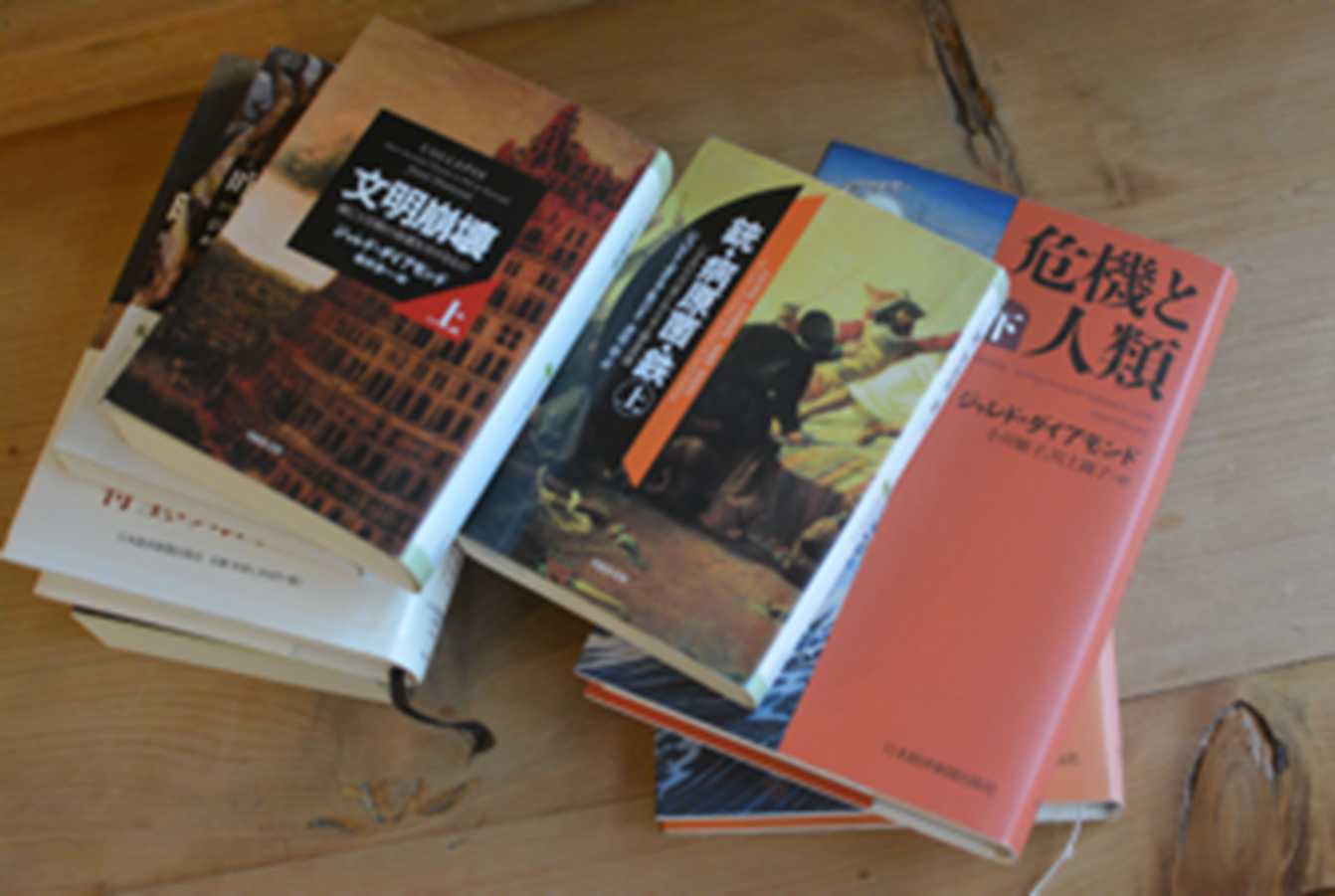
In his co-authored book published in Japan in 2023, Professor Diamond discusses the harsh realities facing democracy and capitalism today. Capitalism inherently leads to wealth concentration and increasing inequality. However, it has long been believed that democracy could counterbalance this by redistributing wealth and ensuring a fair and prosperous society. Now, however, technology is disrupting capitalism, creating a "winner-takes-all economy," Professor Diamond warns.
"Nations have failed to distribute economic benefits more broadly among their people. (...) Today's democracy is monopolized by those who profit from capitalism. Young people are protesting that capitalism does not serve their interests--and they are right. Economic fairness is lacking. (...) Capitalism operates on an exploitative structure. However, the democracy we rely on today is not designed to amplify the voices of those being exploited."
"The Future Foretold (Japanese Edition)" (Edited by Kazuki Ohno, Shueisha International Inc., 2023)
The concentration of wealth also poses risks to environmental issues. As Professor Diamond has revealed in his research on the collapse of civilizations, when a small group seeks to maximize its own profit, it may take actions that are rational yet ethically wrong. Given the crises in capitalism, democracy, and climate, what actions should individual citizens take to confront these challenges?
Voting is a key tool available to citizens in democratic societies. While it carries a crucial responsibility, Professor Diamond emphasizes that there are other meaningful actions citizens can take as well.
"Citizens can give money, even small amounts, to a cause that they care about. There are many environmental organizations, such as World Wildlife Fund (WWF), Conservation International, and others. These environmental organizations often operate on small budgets. Someone like Elon Musk has more money than all the environmental organizations in the world put together. If you want to influence environmental policies, give your 100 yen, your 1000 yen, to environmental organizations.
Another thing you can do is to buy selectively. If you're going to buy timber, ask yourself: where was that timber harvested? Where was that tree cut down? Was it from the Amazon rainforest? If so, you should not buy that piece of wood. You should buy your wood from well-managed forests, like those in Japan, not from the Amazon. Finally, you can join an environmental movement. Instead of just speaking out by yourself, you can become a member of an environmental organization and join a large group of people taking measures to protect the environment. One personal action is small, but if you get a million people working together, then you can influence the world."
As for Soumya herself, she makes a conscious effort to walk and cycle as much as possible when she goes out, instead of taking her car. She said that she also walked a lot when she visited Japan recently. She believes that by changing our own behavior and influencing those around us, as well as politicians, we can change the future. Her powerful words, rooted in the history of MSSRF, which has brought about numerous changes in India, illuminate the path we should take.
Preventing Collapse: The Need for Long-Term Vision and the Courage to Question Fundamental Values
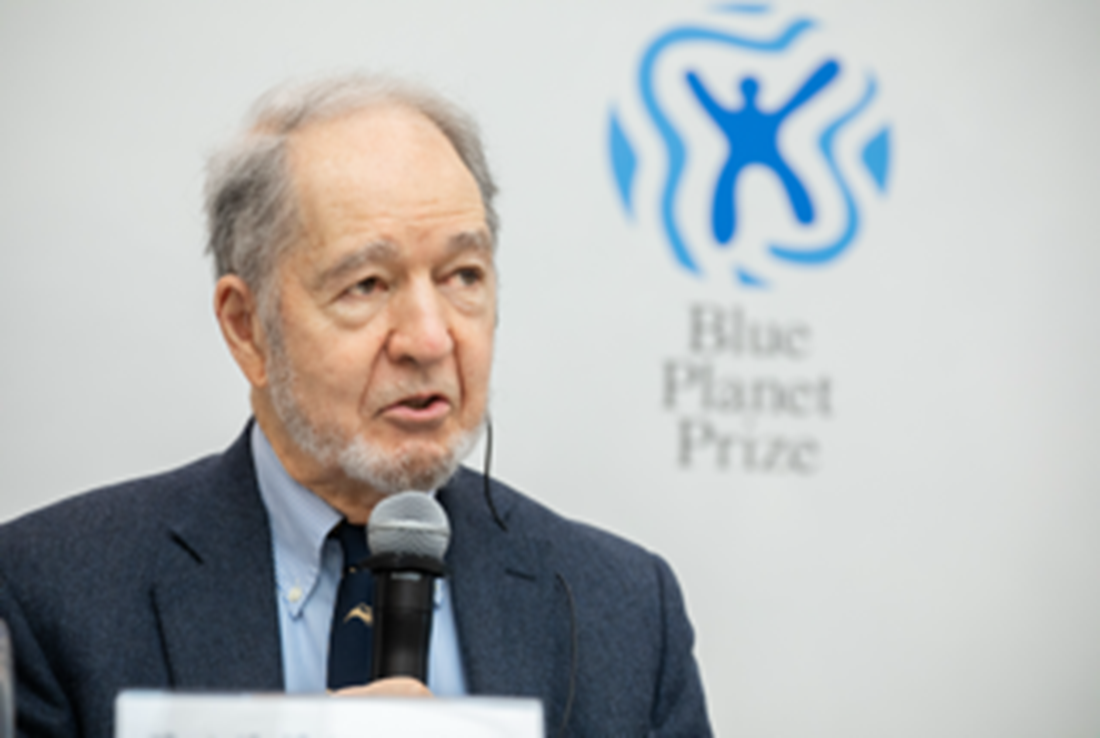
Professor Diamond, who turns 88 this year, firmly believes that young people have the power to change public consciousness and drive solutions to environmental issues.
"If you're a young person, you are going to experience the consequences of environmental problems. Therefore young people are the ones who should be working on environmental problems. I will give you an example of a young Japanese physicist, Fusa Miyake, who has made one of the most important recent developments in radiocarbon dating. If you're young, you can have a bright idea and make a more important contribution than any 50- or 60-year-old professor. So if you're young and you're interested in science, go into scientific research. If you are interested in something else, pursue that. But think about the state of the environment that you will face 30 years from now, and make sure to take good care of the environment so that you can live your life in a good, clean, prosperous world, rather than in a collapsing one."
Professor Diamond considers himself a "cautious optimist" and believes that environmental issues are problems created by humanity. He states that whether we control these problems and take steps toward solving them is entirely in our hands. He also mentions that what is needed is not new technology, but the political will to apply existing solutions. "The most important thing to overcome the environmental crisis", he says, "is not to look for a single solution because we must address at least twelve different problems, not just one."
Even if we recognize the problem, passive, short-term decisions will lead to environmental destruction and, ultimately, the collapse of civilization. To prevent this, we need long-term vision and the courage to question our fundamental values. As Professor Diamond states, "In 30 years, you will experience the world you shape. If the world is messed up, you will suffer the consequences. But if you can fix the world by your discoveries, then you will benefit from it."
Guided by Professor Diamond's insights, gained from his interdisciplinary exploration of human history, we must make informed choices and take action. These efforts will ultimately form the foundation for creating a bright future that overcomes today's crises.
Profile
Professor Jared Diamond
Geography at the University of California, Los Angeles (UCLA)
He is one of the 2019 Blue Planet Prize laureates.
Born in Boston in 1937, Professor Diamond studied biology at Harvard University and physiology at Cambridge University. His research spans various fields, including evolutionary biology, ornithology, and human ecology. He is the author of a dozen books, including Guns, Germs, and Steel, which won the Pulitzer Prize in 1998, as well as Collapse, The World Until Yesterday, and Upheaval. In addition to the Blue Planet Prize, which he received in 2019, he has been honored with numerous other awards, including the Cosmos International Prize for contributions to the coexistence of nature and humankind, and the Tyler Prize for environmental achievements.

